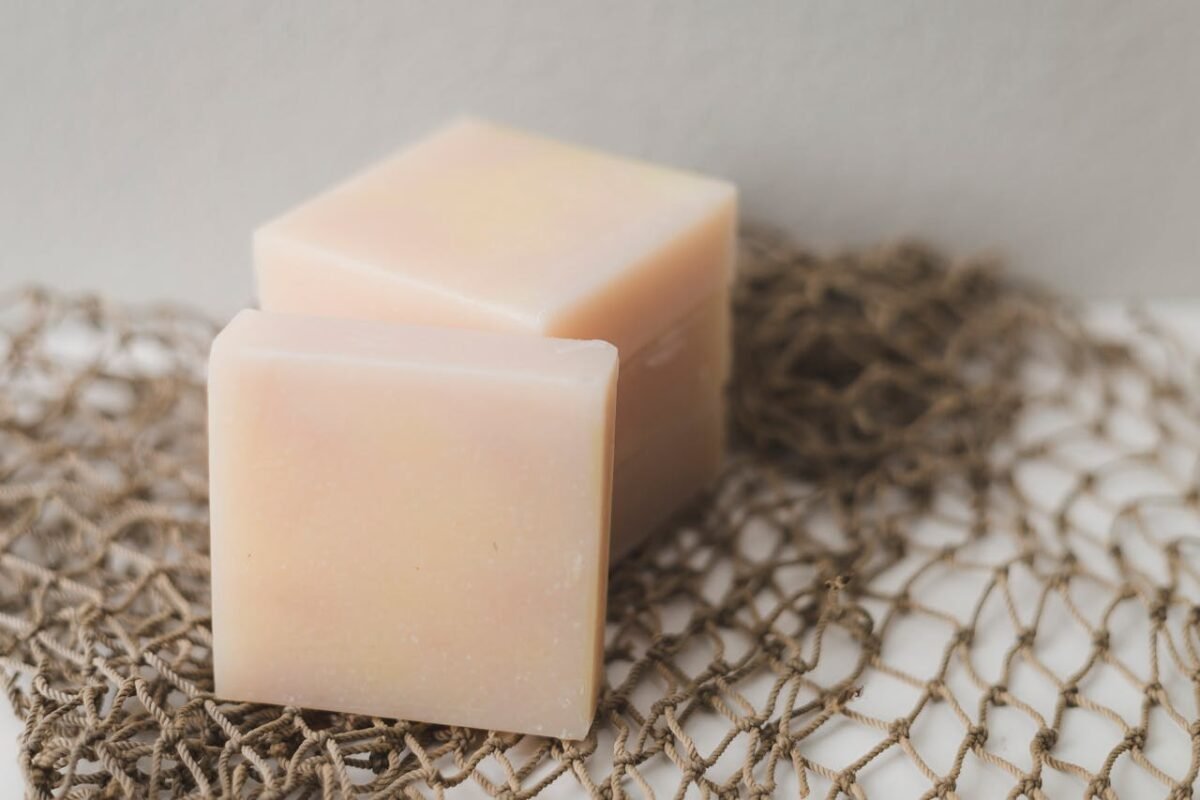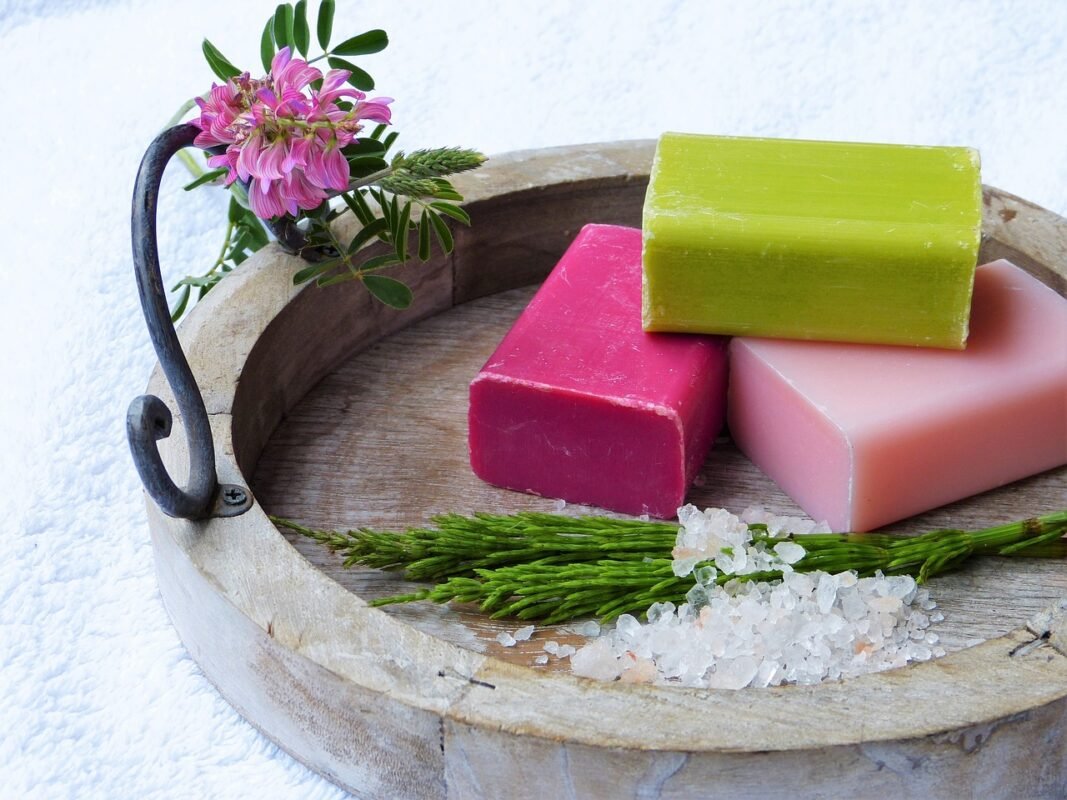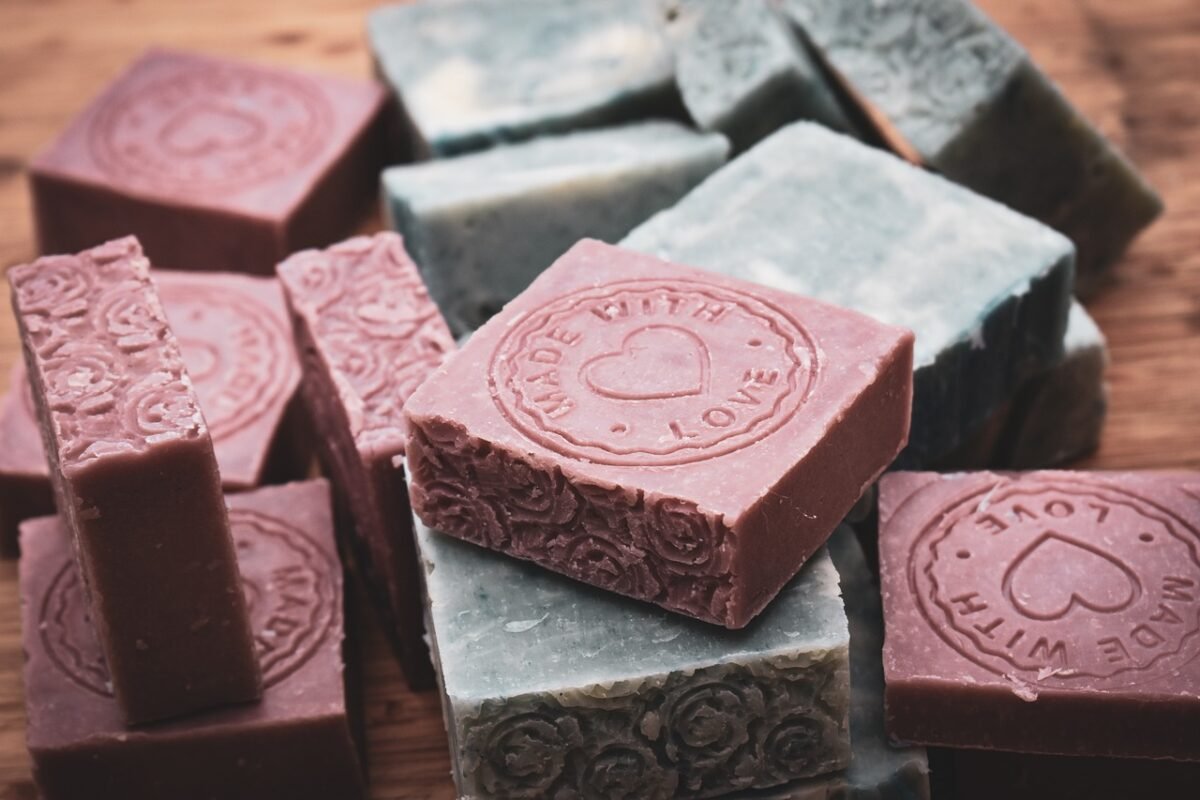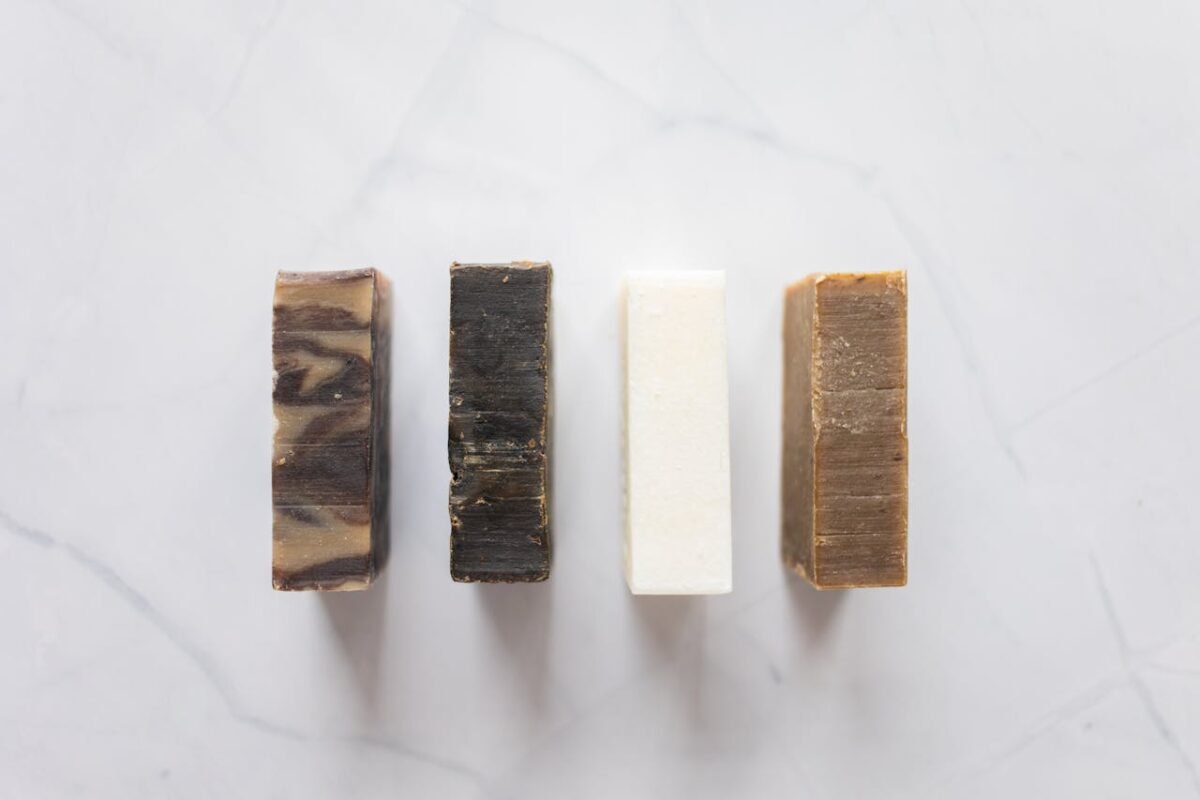In a world dominated by chemical products, many people are turning back to nature and opting for natural soap. This trend isn’t just a fad; it’s a response to the urgent need for healthy and safe skincare. In this blog, we’ll explore the benefits of using natural soap, how to choose the right soap for different skin types, and tips on preserving your soap to prevent it from melting quickly.
Benefits of Using Natural Soap: Why Are So Many Returning to Nature?
As concerns grow over harmful chemical ingredients in daily products, many people are switching to natural alternatives, including soap. Natural soap, made from ingredients like vegetable oils, herbs, and organic extracts, offers numerous benefits that make it a preferred choice for many.
A. Free from Harmful Chemicals:
Commercial soaps often contain harsh chemicals such as sulfates, phthalates, and parabens, which can irritate and dry out the skin. In contrast, natural soap is free from these harmful substances, making it a safer option, especially for sensitive skin.
B. Rich in Nourishing Ingredients:
Natural soap is made from nutrient-rich vegetable oils like olive oil, coconut oil, and almond oil. These oils contain vitamins and antioxidants that help nourish and hydrate the skin. Additionally, ingredients like shea butter or cocoa butter enhance its moisturizing and nourishing properties.
C. Maintains Skin Balance:
Unlike commercial soap that can strip the skin of its natural oils, natural soap helps maintain the skin’s oil balance. This keeps the skin healthier and more vibrant, reducing issues like dryness or excess oil production.
D. Environmentally Friendly:
The ingredients in natural soap come from biodegradable, natural sources, making it an eco-friendly choice. Using natural soap reduces the environmental impact of releasing harmful chemicals into the water, thereby protecting the environment and preserving biodiversity.
E. Naturally Refreshing Scents:
Natural soap boasts aromatic scents derived from essential oils and natural herbs such as lavender, mint, and tea tree. These scents are less likely to cause allergies and often have therapeutic benefits, like improving mood or calming nerves.
F. Supports Local Artisans:
Natural soap is often produced by local artisans and small businesses committed to ethical and sustainable practices. By choosing natural soap, you support the local economy and fair trade practices.
G. Suitable for the Whole Family:
With its safe and natural ingredients, natural soap is suitable for all family members, including children and infants. It reduces the risk of allergies and irritation, making it an ideal choice for families seeking safe and effective skincare solutions.
Natural soap is not just a passing trend but a healthy, sustainable choice that meets skincare needs naturally and safely. By using soap made from natural ingredients, we can enjoy multiple benefits, such as deep skin nourishment, balance, and refreshing natural scents, all while protecting the environment and supporting local artisans. These advantages make natural soap an unparalleled option for daily skincare.
Choosing the Right Soap for Your Skin Type, A Guide to Finding the Best Match:
Selecting the right soap can significantly impact the health and beauty of your skin. Each skin type whether dry, oily, or sensitive—has unique needs. In this section, we provide tips on how to choose the ideal soap for different skin types to ensure healthy and radiant skin.
A. Dry Skin:
Dry skin requires special care to maintain hydration and prevent flakiness and tightness. When choosing soap for dry skin, look for moisturizing and nourishing ingredients.
Ideal Soap Features for Dry Skin:
- Moisturizing Ingredients: Such as shea butter, cocoa butter, and coconut oil. These ingredients deeply nourish and hydrate the skin.
- Rich in Glycerin: Glycerin soap is excellent for dry skin because it attracts and retains moisture.
- Sulfate-Free: Sulfates can dry out the skin, so opt for sulfate-free soap.
Recommended Types:
- Glycerin Soap: Known for its high moisturizing properties.
- Olive Oil Soap: Like Castile soap, which provides gentle, natural hydration.
- African Black Soap: Due to its nourishing natural ingredients.
B. Oily Skin:
Oily skin needs products that help control excess oil production and cleanse pores deeply to prevent acne and blemishes.
Ideal Soap Features for Oily Skin:
- Cleansing Ingredients: Such as activated charcoal and clay, which help absorb excess oil and clean pores.
- Antibacterial Properties: Like tea tree oil, which helps fight acne-causing bacteria.
- Free from Heavy Oils: To avoid clogging pores and increasing oiliness.
Recommended Types:
- Activated Charcoal Soap: For deep cleaning and absorbing excess oils.
- Clay-Based Soaps: Such as those containing bentonite or green clay, to regulate oil production and cleanse deeply.
- Tea Tree Oil Soap: For its antibacterial properties that help combat acne.
C. Sensitive Skin:
Sensitive skin requires gentle products free from ingredients that might cause irritation or allergies. The soap used should be free from fragrances and harsh chemicals.
Ideal Soap Features for Sensitive Skin:
- Natural Ingredients: Free from fragrances and synthetic preservatives.
- Soothing Properties: Such as aloe vera, chamomile, and oatmeal, which help calm the skin and reduce redness and irritation.
- Balanced pH: To maintain the skin’s natural barrier and prevent irritation.
Recommended Types:
- Aloe Vera and Oatmeal Soap: For its soothing and moisturizing properties.
- Castile Soap: Due to its gentle formulation made from olive oil.
- Chamomile Soap: To help calm the skin and reduce inflammation.
Choosing the right soap for each skin type is a fundamental step in skincare. By understanding your skin’s needs and selecting soap with appropriate ingredients, you can maintain healthy and beautiful skin. Remember, skin can react differently to products, so some experimentation might be necessary to find the perfect soap for your skin. With this guide, you’ll be better equipped to care for your skin and meet its specific needs.
How to Make Soap Last Longer, Tips for Proper Storage and Preventing Rapid Melting:
Soap is an essential part of daily hygiene, and keeping it long-lasting is a concern for many, especially if it’s made from natural ingredients or is a luxury soap. Rapid melting is a common problem that can be avoided with some simple steps. In this section, we’ll provide useful tips on how to store soap correctly to ensure it stays solid and lasts longer.
A. Choosing the Right Soap:
1. Solid Soap vs. Liquid Soap:
Solid Soap: Generally lasts longer than liquid soap if stored properly.
Liquid Soap: Can be suitable in certain environments but typically doesn’t last as long as solid soap.
2. Types of Soap:
- Handmade Soap: Often contains natural ingredients and moisturizers, which may cause it to melt faster if not stored correctly.
- Commercial Soap: Contains additional chemicals that help it stay solid longer but might be less gentle on the skin.
B. Using the Right Soap Dish:
1. Soap Dish with Good Drainage:
- Ensure you use a soap dish that allows water to drain well. This helps prevent water from accumulating under the soap, which can cause it to melt quickly.
2. Mesh Soap Dish:
- Mesh soap dishes are ideal as they elevate the soap from the surface, allowing air to flow around it, which helps it dry quickly between uses.
C. Drying the Soap After Use:
1. Drying the Soap:
- After each use, rinse the soap quickly, remove any excess lather, and place it on a soap dish to dry.
2. Good Ventilation:
- Ensure the soap storage area is well-ventilated. Placing the soap dish in an open area instead of a closed bathroom can speed up the drying process.
D. Reducing Moisture Exposure:
1. Avoid Moisture Sources:
- Try to store soap away from constant moisture. Placing soap near the shower or sink can expose it to constant moisture, accelerating its melting.
2. Using a Soap Cover:
- If you take soap with you while traveling or to the gym, use a soap cover that allows good ventilation so the soap doesn’t remain wet for long periods.
E. Cutting Soap into Smaller Pieces:
1. Cutting the Soap:
- Cut a large soap bar into smaller pieces. Use one piece at a time and store the others in a dry place. This reduces the exposure of the entire bar to moisture.
2. Storing Extra Pieces:
- Store unused pieces in a dry, dark place like a drawer or cabinet, away from moisture and direct heat.
F. Rotating Between Multiple Soap Bars:
1. Multiple Usage:
- If you use more than one type of soap, rotate between bars. This gives each bar enough time to dry completely between uses.
2. Benefit of Rotation:
- Use calming scents like lavender and vanilla, and add a handwritten greeting card.
G. Using High-Quality Soap:
1. Choosing High-Quality Soap:
- Opt for soap made with high-quality ingredients to ensure it lasts longer. Handmade soap made from natural oils and butters can be more durable if stored correctly.
2.Reading Product Reviews:
- Check product reviews before purchasing to ensure the soap you choose has a good reputation for durability and effectiveness.
Properly caring for your soap through correct storage can help you use it longer and save money in the long run. By selecting a suitable soap dish, reducing moisture, and cutting bars into smaller pieces, you can keep your soap solid and ready to use for as long as possible. Following these simple tips will allow you to enjoy your favorite soap without worrying about it melting quickly.
Conclusion :
Using natural soap is not only a healthy choice for your skin but also a step towards a more sustainable and eco-friendly lifestyle. By selecting the right soap for your skin type and storing it properly, you can extend its benefits for a longer period. Let’s return to nature and take care of our skin in safe and effective ways.





